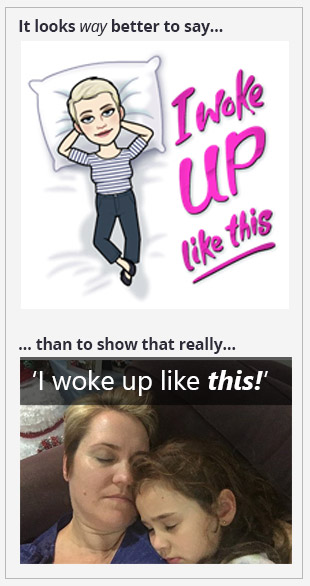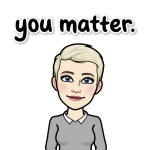The musings of an empathetic mum, teacher, leader and global digital citizen
(aka Mrs V)
PART 7: Opinions and Anonymity
Welcome back to Tech T@lk! This week we are going to consider how as individuals we seek acceptance online, and how swiftly-made decisions to ‘follow the crowd’ can open us up to online bullies. Last time we began discussing the topic of cyberbullying. This week I would like us to consider some ways that we can help our children guard themselves from some online attacks by discussing Opinions, Anonymity and Online Activism.
These days more and more people are commenting online about things that are happening around the world. In many ways this is great because it means that more people are becoming aware of what’s going on around the world… or are they?
Movements such as #metoo and #iwillridewithyou gained worldwide fame within hours of their inception. Stemming from a significant social injustice, each hashtag took the world by storm. The speed with which these movements took off on social media was completely mind-blowing. Social media platforms such as Facebook are also incredibly helpful when it comes to these types of movements, because they provide their users with filters and frames which allow them to become a part of the movement visually through their profile pics — just as I did when showing my support for Paris, France in light of their terrible terror attacks.

 One of the messages I want people to walk away with is that there is an addictive allure to movements on social media. Careful thought and some caution must be given to which movement we, and our children align ourselves to. Consider this, in a world where everything that is portrayed online seems perfect, it is common for young people — and dare I say adults — to become swept up in the adrenalin, ‘community’ and perfection of life as we see it through the lens of social media. We can all recall those posts where everybody’s food photos look incredible, their hair looks amazing as they just roll out of bed, their house is perfectly clean… ALL the time — and everybody else’s family could not be any more perfect if they tried.
One of the messages I want people to walk away with is that there is an addictive allure to movements on social media. Careful thought and some caution must be given to which movement we, and our children align ourselves to. Consider this, in a world where everything that is portrayed online seems perfect, it is common for young people — and dare I say adults — to become swept up in the adrenalin, ‘community’ and perfection of life as we see it through the lens of social media. We can all recall those posts where everybody’s food photos look incredible, their hair looks amazing as they just roll out of bed, their house is perfectly clean… ALL the time — and everybody else’s family could not be any more perfect if they tried.

When the ‘perfect world’ of Social Media is all we see, it is easy to be swept under its spell. Consider for a moment how many times you have quickly viewed just a portion of a video on Facebook, and have then liked and shared it without giving it careful thought, or even watched it fully yourself. I know that many times I have liked and shared a post so that it remained in my thread and was available for me to go back to later and watch fully… which never happens!
So how do social media movements such as #metoo and #iwillridewithyou draw closer the possibility of someone being bullied online?
It comes down to two factors: Opinions and Anonymity.
These days it is incredibly easy to become swept up in a social media movement or alternatively in a social media rage. As a young person, sometimes all it takes is to see one of your friends like something, and before you know it you have liked it too. What young people do not always consider, is that every time we like something, share something or comment on something, we are aligning ourselves with its message. We are inadvertently at times stating an opinion which we have in fact given no thought to whatsoever.
 Add to this the fact that posting online can make you feel like it’s easier to say things that you would never say out loud to others. After all, you do not have to watch the other person’s reaction to what you have posted, you can choose not to engage any further with a discussion or dialogue about what you have supported online, and in other cases you actually have given it no consideration at all and are completely unaware of what you may have aligned yourself to.
Add to this the fact that posting online can make you feel like it’s easier to say things that you would never say out loud to others. After all, you do not have to watch the other person’s reaction to what you have posted, you can choose not to engage any further with a discussion or dialogue about what you have supported online, and in other cases you actually have given it no consideration at all and are completely unaware of what you may have aligned yourself to.
But before you post something just to get a reaction from someone online, remember that the stuff you say can actually get you into a spot of trouble. Stuff like hate-speech, threatening others or speaking badly about your workplace (or teachers), can get you fired from your job or seriously damage relationships at school. Sometimes simply tying ourselves to another person’s post online is enough to show support of their opinion, where in fact, perhaps we were just trying to show support for our friend. After all, does liking a post mean ‘I love you, are you okay, I know this post was tough for you’ or does it mean ‘I love what you are saying, I totally agree with you, or… you are so right, sister!’ Ultimately, it will be the perspectives and experiences of the person viewing our posts, likes, and shares, which will form how they take our comments and posts online. Heavy, I know!

So as we support our kids in understanding the complexity of social media, and help them consider ways to protect themselves online, it is important to discuss how our own social media profile can divide friendships. It’s okay to have an opinion on things, but we need to encourage our children to think about the possible outcomes of our posts — such as, will I be offending someone, or what does this post say about me? If you wouldn’t say something in person, don’t say it on their wall or in your status updates. If it’s wrong to say certain things offline, saying it online doesn’t make it okay. As my parents would remind us as kids, ‘If you wouldn’t say it to Granny, then you probably shouldn’t say it at all!’
Online activism, is when we use electronic means like social media to create awareness around certain issues, spread information about certain issues or try to get people to support a particular issue. Of course, these issues are often about human rights, animal rights and equality to name a few. However, online activism can also have a negative side. Often it is the unintended by-product of a misplaced post that can cause unrest, or worse — the instigation of hurtful online responses that can lead to bullying if left unchecked.
Online activism allows us to become more aware of the issues around us and for us to get a sense of exactly how the people around us are affected. It can help people mobilise to do something about it and can often help people feel like they are not alone.
The more a movement spreads, like the #metoo movement, the more people come forward to tell their own stories. This means that issues are put in the spotlight and we get a chance to talk about them more. It shows just how bad some situations can be and forces us to rethink the way we respond to them.
 However there is a negative side to online activism too.
However there is a negative side to online activism too.
This happens when people misuse a hashtag, threaten victims who are telling their story or when people start online movements that make false claims about other people. In the case of people misusing a hashtag — people might use the movement as a joke, or wrongfully accuse people of doing something wrong. Then there are people who start movements that actually encourage hate. These hate movements can, at their worst, endanger people’s lives and spread the wrong message.
To help our children avoid getting on the bad side of online activism, we need to make sure that they understand the facts around each social issue, don’t attack victims or supporters who comment, and don’t share stories about people if you don’t know whether they are true or not. Sadly, due to the anonymity of social media, both the fact that in many cases you do not know the person you are commenting to, or simply the fact that you can hide behind an avatar or false name, will cause people to say things they could never consider if they were standing face to face.
 When we choose to align ourselves with a political, social, ethical or moral position online we must help our children understand that comments will often be taken literally, and perceived as supporting the cause. This can open them up to situations of disagreement, which in the most sinister forms can become online bullying. For young people, who were just trying to show that they cared about something, this can be a very confronting situation to find themselves in, and a tricky one to get out of.
When we choose to align ourselves with a political, social, ethical or moral position online we must help our children understand that comments will often be taken literally, and perceived as supporting the cause. This can open them up to situations of disagreement, which in the most sinister forms can become online bullying. For young people, who were just trying to show that they cared about something, this can be a very confronting situation to find themselves in, and a tricky one to get out of.
As always, keep talking. Keep the dialogue open and help them remember that they can always — always — come and talk to you! Keep on fighting the good fight mum and dad… You ARE awesome!
(Novice Minecraft player, Level 11 Clash Royale Clan Leader, firm but loving digital parent, mistake-maker and Head of Junior School)
 SEQTA
SEQTA


